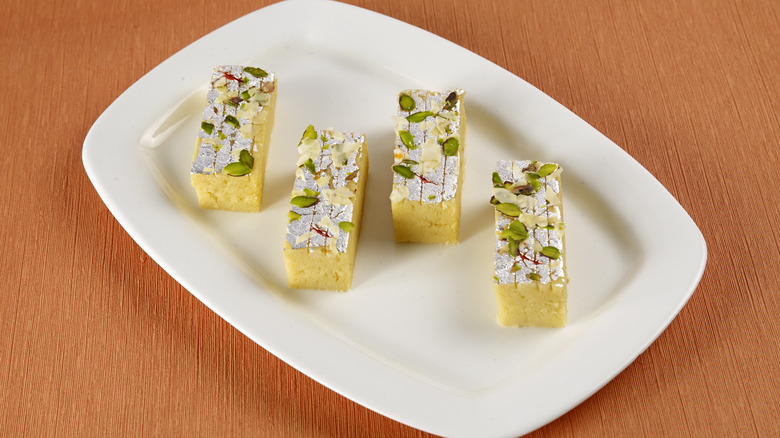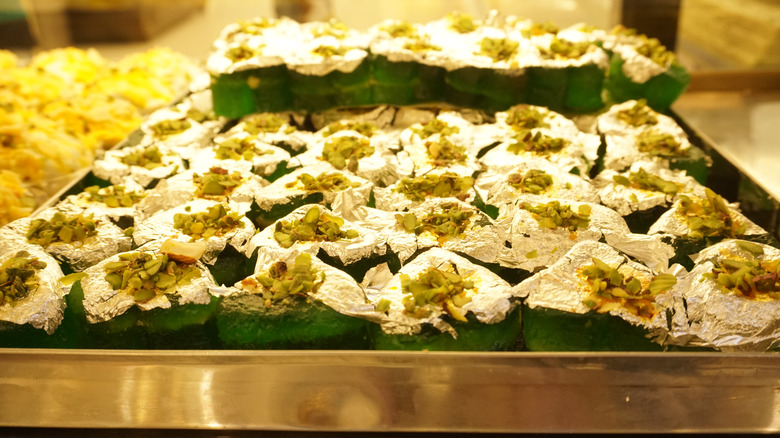Warq: The Ancient Silver Topping Used In South Asian Cuisine
Autumn means Diwali for millions of Hindus, Jains, and Sikhs around the world. Typically landing near late October or early November of the Gregorian calendar, the five-day festival draws its name from the Sanskrit dipavali, which means "row of lights," according to Britannica. Fittingly, the holiday celebrates the light prevailing over darkness. Different regions of India use Diwali to honor different gods and legends.
For instance, in much of North India, the festival commemorates Rama's defeat of the demon king Ravana, while South India uses Diwali to honor Krishna's defeat of the demon Narakasura. Specific demon-slayings aside, certain aspects of Diwali are universal, particularly the abundance of decorative lights, as one would expect, and lots of good eats. Per Taste of Home, Diwali is a time for sugary treats such as gulab jamun and barfi, sweet milk-based snacks flavored with nuts or fruit. Often, they are as eye-catching as they are delicious, thanks to a silver topping.
What exactly is warq?
Perhaps you've had a piece of chocolate or similar sweet thing decked out in edible gold leaf. It's always a showstopper, and certainly worthy of celebratory occasions. Warq is the same thing, but it's typically silver. Atlas Obscura notes that the full Hindi term is actually "chandi ka warq," with chandi meaning silver while a lesser-used version called "sone ka warq" is gold. The use of Warw is not just for show, as ancient Ayurvedic texts speak of medicinal benefits to be gained from eating a silver leaf.
Interestingly enough, Science reports that subsequent research has proven silver to have antibacterial properties, and it has been used in some medical contexts. According to Atlas Obscura, warq was traditionally the work of silversmiths, who pounded the thin sheets by hand, but today, it is mostly machines who do the work. Modern times have also brought significant concerns about fake or contaminated warq.
India Today reports on numerous concerns about the warq industry, including the silver being replaced by aluminum, being contaminated with poisonous metals like nickel and lead, or being made under unsanitary working conditions. The outlet suggests that especially when demand for warq is the highest during Diwali, customers check its authenticity. Try touching the warq coating of your sweets — if silver residue sticks to your fingers, they've been contaminated with aluminum.

